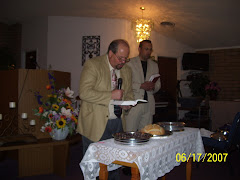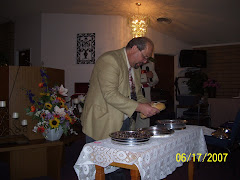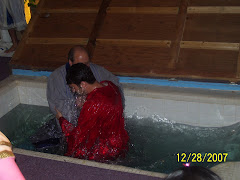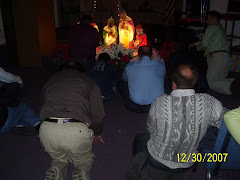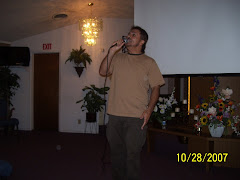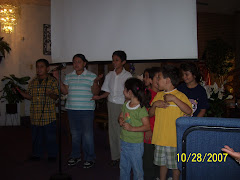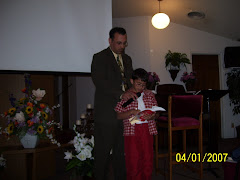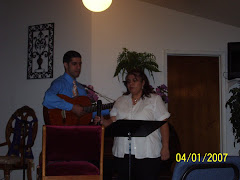Yes, I know that because I am a white male Christian that I should only be the perpetrator of discrimination and never the victim. However, I managed to get the short end of the stick four times this year. These have resulted in me having to endure serious finical hardship.
Many of the services provide by this organization are in home and are received by children various ethnicities, nationalities, religions, etc. So one of the things that had to be discussed was cultural sensitivity. Unfortunately, the instructor could not discuss this because she managed to offend an unknown group of students the last time she had taught that unit. She therefore had to go and take a special course herself before she could resume teaching it. They would go ahead and have us complete the rest of the training and call us back in once she had been recertified to teach it again.
A couple of students asked if she could recommend were we might be able to go to take a course in the mean time. She, due to stupid legal concerns, was forbidden by her supervisor to do so. Therefore, I volunteer the idea that church that do cross-cultural ministries often time have class to teach their workers about such matters. That is when the problems started. She said, speaking as someone who obviously has never been apart of a church’s cross-cultural ministry, said that might not be a good idea. That some church might not want outsiders coming into their class.
I was so shocked at the ignorance of her statement that I was speechless. Any church who starts a cross-cultural ministry does so because they want outsiders to come. It is the vary mission that the church was put on the Earth to fulfill. I could see how a group of students could get offended by someone like her. She was offending me by speaking on behalf of a group that she obviously has never been a part of, but I was!
Never-the-less, I stood down out of respect for her position as the teacher. I hoped to come back early from lunch and discuss the matter in private. Although she could not teach the unit, she was did take time to emphasize the point that cultural sensitivity was important. In the process, it became vary clear that she had issues with my entire ideology that she never gave me the opportunity to fully articulate.
Lunch finally came and I left and came back early to make sure that I had enough time talk to her in privet. I never got the opportunity. As soon as I got back, she told me that her supervisor had to talk to me. Her supervisor told me that the organization did not have an opening for me at that time and that I would not be able to complete the class. She walked me back to the class and observed me from the doorway as a gathered my personal items.
There are two different types of discrimination at work here. The first is the discrimination that the “politically correct” commit against those who are not paranoid about stepping on other peoples toes. This is not to say that I am callous about other people’s feeling. I acknowledge that the “politically correct” have done a lot of good by confronting negative pre-conceived notions about those who we do not really know. Especially when it comes to those with disabilities.
I am however; a gratefully recovering co-dependant that “political correctness” often times goes too far and becomes what I call “political co-dependency”. One of the biggest characteristics about us co-dependences is that we do not believe that it is OK to be ourselves. We feel the need to have to conform to what other want us to be in spite of the fact that those who expect such have totally different expectations. What we co-dependents have to learn is that if we just develop our charator so that it is consistant with the teachings of the Bible, we will win over the vast majority of people whom we cross paths with. The one who do not want to get along with us, do not want to get along with anybody else. That is their fault, not ours!
Another major characteristic of co-dependency is the “egg shell” mentality. A dysfunctional family that has an addict will often times “walk on egg shells” in order to keep the peace. It will also keep the addict an addict and therefore the family unit will remain dysfunctional. The first step in breaking the chains of addiction and dysfunction is for someone to speak out against it. “Political correctness” becomes “political co-dependency” when those who try to speak out against the dysfunction are villainized.
No culture is divinely inspired. Every culture that I have ever encountered has various degrees of domestic violence, male chauvinism and ethnic malice. This is not to say that you will find it in every household. Never-the-less, most societies recognize that the husband-father is considered to have the right of absolute rule over their household. If he is of noble and righteous character, then everything is great. If he is an abusive tyrant, then the entire community is expected to stand aside and allow him to terrorize the members of his household.
The majority of the few times that I have ever had inter cultural conflict is when I refused to stand aside. Most notably when I demanded that husband provide proof of his allegations of his wife’s adultery. In his culture, all wives accused of adultery are treated as guilty, period. I was told that I was imposing my American ways on them. They were dumb found when I explain to these “Christians” that my stance was grounded in Biblical instruction rather then American culture. (Deuteronomy 19:15, “One witness shall not rise against a man concerning any iniquity or any sin that he commits; by the mouth of two or three witnesses the matter shall be established.”)
The only other times that I have had cultural conflict is when children abandoned the cultural principals that they need. They instead try to fit in with their American peers by embracing the worst aspects of American culture. Most notably, contempt towards their parents and all other authority. The consequences are that they wind up throwing away their opportunity to go to collage and thus condemn themselves to lives of poverty. I know to young girls who dropped out of high school because they got pregnant. I know another one that is following their same path. Then there is the 14 year who has been secretly meeting guys on My Space.
I hope that you can see that I do not have arbitrary cross-cultural conflicts. I will only take a stand when it matters. I will speak out against any practice, including American ones, which are self-destructive and/or oppressive. I will defend any practice, including foreign ones, which will help individuals make the most out of their time here on Earth. Especially Biblical ones!
The second form of discrimination in this case is one committed by a scholarly intellect who relies on knowledge acquired from special training classes. This teacher showed no respect for someone like me who has not attended such class, but relies on knowledge acquired through my personal experience in cross-cultural church ministry. With all of her book knowledge, she still managed to lose her certification to teach cultural awareness by her previously offending an unknown group.
This is not to say that such classes are not beneficial and that she had no actual cross-cultural experience. After all, we live in
My approach, to go to them as a humble student wanting them teach me their culture themselves, has always been well received. This approach has served me well for the past five years at the Arabic church that I am not only a member of, but also take a leading role helping it function. It also served me well in the past nine years while working with refugees from every country destroyed by “civil war” since I was born. Many of these were Muslims that were at first harassed by their hard line conservative neighbors for befriending me. In time, most of those neighbors befriended me as well.
Finally, I want to give you my core cross-cultural insight: View everybody first and foremost as human beings who…
- …are capable of free choice. Just because their culture tries to teach them certain ways of doing things does not mean that they want obey. As I stated earlier, many of these cultural practices are oppressive and therefore many of those who are suppose to submit to them want to reject them. If we assume that we have to cooperate with such practices, are we not imposing this oppression on them? Should we expect women have to ride in the back seat just because there culture says that they have to. Do you have any idea how many women come to this country just so they can be treated as equals? How dare anyone deny them that right! Never-the-less, many do want to submit to such practices and so we have to except that we cannot defend those who do not want to be defended.
B. …have the same basic desires to live peaceful and prosperous lives. I know that many go astray by suppressing those desires and instead follow the evil in their hearts. However, this same fact is true about
C. …are so loved by God that he sent his only begotten son to die for them. Non-Christians may choose to reject this principle, but true Christians are not given an option.









